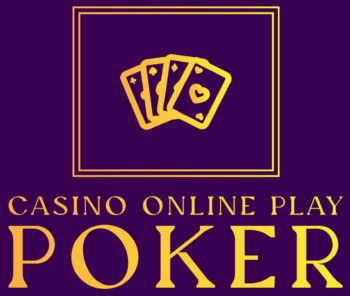Problem gambling intervention involves recognizing symptoms and accessing available support systems.
Support groups like Gamblers Anonymous offer community-based assistance and peer accountability. Online resources provide anonymous, convenient options for those seeking help. Professional therapy, particularly cognitive-behavioral therapy, can be tailored to individual needs. Online counseling platforms increase accessibility to therapeutic interventions.
Practical recovery strategies include:
- Implementing strict budgeting techniques
- Identifying and managing emotional triggers
- Developing alternative coping mechanisms
These resources and strategies can be utilized in combination to create a comprehensive treatment plan. Research indicates that a multi-faceted approach, incorporating both professional and peer support, often yields the most effective outcomes in addressing problem gambling behaviors.
It is important to note that recovery from gambling addiction is a process that requires commitment and ongoing effort.
Relapse prevention strategies and long-term support are crucial components of successful treatment programs.
Financial counseling may also be beneficial in addressing gambling-related debts and rebuilding financial stability.
Key Takeaways
- Seek help through therapy, such as Cognitive-Behavioral Therapy (CBT), tailored to address gambling issues.
- Join support groups like Gamblers Anonymous (GA) for community, accountability, and shared coping strategies.
- Utilize online resources and forums for anonymous support and practical advice on managing gambling habits.
- Develop a budget and track expenses to regain control over finances and address debt.
- Access local mental health organizations or healthcare facilities for personalized treatment options.
Recognizing the Signs
Recognizing signs of problem gambling is essential for early intervention.
Key indicators include:
-
Time and financial commitment: Gambling transitions from occasional activity to consuming significant time and resources.
-
Secrecy: Concealing gambling activities from friends and family.
-
Chasing losses: Persistent gambling to recoup lost funds, perpetuating a harmful cycle.
-
Withdrawal symptoms: Experiencing restlessness or irritability when not gambling, suggesting dependency.
-
Financial strain: Borrowing money, selling possessions, or neglecting financial obligations to support gambling habits.
-
Emotional changes: Development of anxiety, stress, or depression related to gambling activities.
-
Relationship impact: Gambling-related conflicts or social isolation.
These indicators collectively suggest a gambling problem.
Recognition of these signs is crucial for understanding the severity of the situation and initiating appropriate interventions.
Early identification can facilitate timely support and prevent further escalation of gambling-related issues.
It is important to note that problem gambling is a recognized behavioral addiction with potential for serious personal and financial consequences.
Professional assistance may be necessary for individuals exhibiting multiple signs of problematic gambling behavior.
Seeking Professional Help
Seeking professional help is a significant step in addressing problem gambling. It indicates a recognition of the issue and a willingness to take action.
Professional assistance offers a structured approach to understanding and managing gambling behavior.
Professional help provides several advantages:
- Expertise: Professionals trained in gambling addiction have specialized knowledge and experience.
- Tailored strategies: Treatment can be customized to individual needs and circumstances.
- Objective perspective: Professionals offer insights that friends or family may not be able to provide.
Common sources of professional help include:
- Primary care physicians: Can provide initial assessment and referrals to specialists.
- Therapists and psychologists: Offer counseling and cognitive-behavioral therapy to address underlying causes and develop coping mechanisms.
- Support groups: Provide peer support and shared experiences.
The process of seeking help typically involves:
-
Initial consultation: Assessment of gambling habits and associated problems.
-
Treatment planning: Development of a personalized approach to recovery.
-
Ongoing support: Regular sessions and monitoring of progress.
Research indicates that professional intervention can significantly improve outcomes for individuals with gambling disorders. A study published in the Journal of Gambling Studies found that cognitive-behavioral therapy reduced gambling behavior and improved overall well-being in participants.
It is important to note that recovery is a process, and professional help is one component of a comprehensive approach to addressing problem gambling.
Counseling Services
Counseling services play a significant role in addressing problem gambling.
Professional help typically involves various forms of therapy, with cognitive-behavioral therapy (CBT) being particularly effective. CBT helps individuals recognize and modify harmful gambling behaviors and thoughts.
Therapists employ various techniques tailored to each client’s specific situation. They work to identify triggers and patterns that lead to gambling, enabling the development of healthier coping strategies.
Counseling sessions provide a confidential environment for discussing experiences and emotions related to gambling addiction.
Family therapy is often beneficial, as problem gambling frequently affects relatives and close relationships.
Involving family members in therapy can aid in rebuilding trust and improving communication. Therapists can educate families about the complexities of gambling addiction, potentially fostering a more supportive home environment.
Online counseling options are available, offering increased accessibility and flexibility for those seeking help.
This modality ensures that individuals can access support regardless of geographical location or time constraints.
Seeking counseling represents a proactive approach to addressing problem gambling.
It provides individuals with tools and strategies to regain control over their gambling behaviors and work towards recovery.
The effectiveness of counseling in treating problem gambling is supported by research and clinical evidence.
Support Groups
Joining a support group can significantly aid your recovery journey by providing a safe space to share experiences with others who understand your struggles.
You’ll find that hearing others’ stories not only offers comfort but also practical strategies for overcoming gambling issues.
Start by searching for local groups in your community or online to get the support you need.
Group Meeting Benefits
Support groups provide a resource for individuals dealing with problem gambling. These groups offer an environment where participants can discuss their experiences and challenges. One benefit is the sense of community, as individuals encounter others facing similar issues.
Group meetings contribute to structure and accountability. Regular attendance can establish a routine, potentially aiding in maintaining commitment to recovery. Participation in a group may increase motivation and focus on goals due to the support of other members.
Support groups often include educational elements. Participants may learn about coping strategies, financial management techniques, and methods for repairing relationships affected by gambling. These practical tools can be useful in the recovery process.
Research indicates that group therapy can be effective in treating gambling disorders. A study published in the Journal of Gambling Studies found that group cognitive-behavioral therapy was associated with significant reductions in gambling behavior and improved psychological well-being.
However, it’s important to note that the effectiveness of support groups can vary among individuals. Some may find alternative treatments, such as individual therapy or medication, more beneficial. It’s advisable to consult with a healthcare professional to determine the most appropriate treatment approach.
Check out our article Exploring the Benefits of Multi-Platform Gaming Experiences to learn more.
Shared Experiences Matter
Shared experiences play a significant role in addressing problem gambling.
Research indicates that peer support can be an effective component of recovery programs.
Support groups provide a platform for individuals to share their challenges and learn from others who’ve faced similar situations.
These groups offer several benefits:
- Emotional support: Participants can express their feelings in a non-judgmental environment.
- Practical advice: Members often share coping strategies and resources that have proven helpful in their recovery.
- Reduced isolation: Connecting with others who understand the struggles of problem gambling can alleviate feelings of loneliness.
- Accountability: Regular group meetings can help individuals maintain their commitment to recovery.
Studies have shown that participation in support groups can improve treatment outcomes for problem gamblers.
The collective experiences of group members contribute to a knowledge base that can inform individual recovery strategies.
Additionally, these groups can help destigmatize problem gambling, potentially encouraging more individuals to seek help.
It is important to note that while support groups can be beneficial, they shouldn’t be considered a substitute for professional treatment.
Rather, they can complement formal interventions and provide ongoing support throughout the recovery process.
Finding Local Groups
Recovery from problem gambling often involves establishing an effective support network.
Local support groups can provide valuable assistance by offering a platform for sharing experiences, gaining insights, and reducing feelings of isolation. Research indicates that connecting with individuals who’ve similar experiences can significantly impact the recovery process.
Gamblers Anonymous (GA) meetings are a primary resource for local support.
GA utilizes a 12-step program modeled after Alcoholics Anonymous, providing a structured approach to addressing gambling issues. Meeting information is typically available on the official GA website. Common meeting locations include libraries, community centers, and religious institutions.
Additional local resources may be available through mental health organizations or healthcare facilities.
These groups often offer alternative approaches, such as professionally facilitated sessions or therapy-based interventions. Local health departments and online directories can provide information on these options.
For individuals unable to attend in-person meetings, many support groups now offer virtual alternatives.
This increased accessibility ensures that support is available regardless of geographical location or scheduling constraints. It’s important to note that finding a group that provides a comfortable and supportive environment may require exploring multiple options.
When selecting a support group, consider factors such as the group’s approach, meeting frequency, and participant demographics.
Evaluating these elements can help identify the most suitable option for individual needs and preferences. Ultimately, consistent participation in a well-matched support group can contribute significantly to the recovery process for individuals struggling with problem gambling.
Financial Guidance
Now let’s look at how to regain control of your finances.
Start by creating a budget and tracking every expense to understand where your money is going.
Additionally, explore debt management solutions to address any financial burdens that gambling may have caused.
Budgeting and Expense Tracking
Effective budgeting and expense tracking are crucial components of financial management.
A comprehensive monthly budget should include all income sources and necessary expenses, such as housing, utilities, food, and transportation.
Utilizing budgeting software or spreadsheets enables accurate monitoring of expenditures, facilitating the identification of spending patterns and potential areas for reduction.
Setting specific, achievable financial objectives, like monthly savings targets or debt repayment goals, provides direction and motivation.
Allocating a fixed amount for discretionary spending helps maintain financial discipline.
The use of debit cards instead of credit cards can mitigate the risk of overspending.
Regular budget reviews are essential to ensure adherence and allow for adjustments based on changing financial circumstances.
Maintaining detailed records of all transactions, regardless of size, promotes accountability and provides a clear overview of financial activities.
Active money management through these methods can lead to improved financial control and potentially reduce stress associated with financial difficulties.
This approach is particularly beneficial for individuals seeking to address issues related to problem gambling or other financial challenges.
Debt Management Solutions
Debt management solutions encompass various strategies to address financial obligations effectively.
The first step involves compiling a comprehensive list of all debts, including credit card balances, loans, and other outstanding amounts. This inventory provides a clear overview of the total debt burden.
Prioritization of debts is a crucial aspect of management.
High-interest debts typically warrant immediate attention due to their potential for rapid growth and increased financial strain. Addressing these debts first can mitigate long-term financial impact.
Credit counseling agencies offer professional guidance in debt management.
These organizations can assist in developing personalized debt management plans, which may include negotiations for lower interest rates or debt consolidation. Such plans aim to streamline debt repayment and potentially reduce overall financial burden.
Debt consolidation loans represent another viable option.
These financial products combine multiple debts into a single loan, often with a lower interest rate. This approach simplifies the repayment process and may result in cost savings over time.
In cases of severe financial distress, bankruptcy may be considered as a last resort.
However, this option carries significant long-term consequences and should be approached with caution. Consultation with financial and legal professionals is advisable to fully understand the implications of bankruptcy proceedings.
Each debt management strategy has its own set of advantages and potential drawbacks.
The most appropriate solution depends on individual financial circumstances, debt levels, and long-term financial goals. A thorough assessment of one’s financial situation is essential in determining the most effective approach to debt management.
Online Resources
Online resources provide various tools and platforms for individuals dealing with problem gambling.
Websites, forums, and helplines offer support and information, often allowing users to maintain anonymity while seeking assistance.
Reputable websites like Gamblers Anonymous provide information on recognizing problem gambling signs and recovery steps.
These sites typically include self-assessment tools to evaluate gambling problem severity and directories of local support groups and counselors.
Online forums, such as Reddit and specialized gambling recovery platforms, offer community support where individuals can share experiences and receive advice from others with similar backgrounds.
These communities provide both emotional support and practical strategies for managing gambling issues.
Several apps are available to help track and control gambling activities.
Applications like BetBlocker and Gamban can restrict access to gambling websites, potentially aiding in behavior modification and regaining control over gambling habits.
While online resources can be beneficial, it’s important to note that they shouldn’t be considered a substitute for professional medical advice or treatment.
Individuals with severe gambling problems may require more intensive interventions, including in-person therapy or counseling.
The effectiveness of online resources in addressing problem gambling can vary depending on individual circumstances and the severity of the issue.
Some studies suggest that online interventions can be helpful, particularly for those with mild to moderate gambling problems, but more research is needed to fully understand their long-term impact.
Self-Help Strategies
Self-help strategies complement online resources in managing gambling issues and promoting long-term recovery.
Setting clear limits on gambling activities is a practical approach. This involves determining specific time and monetary boundaries and adhering to them, which aids in regaining control and mitigating impulsive behavior.
Identifying and avoiding triggers is another crucial strategy.
Recognizing situations, individuals, or emotions that instigate gambling urges allows for the development of healthier coping mechanisms. These may include engaging in alternative activities, physical exercise, or seeking support from trusted individuals.
Maintaining a gambling diary can provide valuable insights.
Documenting gambling activities, including outcomes, triggers, and associated emotions, facilitates the identification of behavioral patterns. This understanding enables more effective strategy adjustments and improvements.
Establishing a supportive network is essential for sustained recovery.
Sharing experiences with trusted friends or family members can provide encouragement and accountability. Participating in support groups offers a sense of community and shared understanding among individuals facing similar challenges.
These self-help strategies, when implemented consistently, can contribute significantly to managing gambling issues and fostering long-term recovery. However, it’s important to note that severe gambling disorders may require professional intervention in addition to self-help methods.
Conclusion
You can take control of your life by recognizing the signs of problem gambling and seeking out the available support. Professional counseling, support groups like Gamblers Anonymous, and financial guidance can make a big difference. Online resources offer convenience and anonymity, while self-help strategies help you understand your triggers. Remember, you’re not alone, and there are plenty of resources to help you on your journey to recovery. Take the first step today and reclaim your life.


